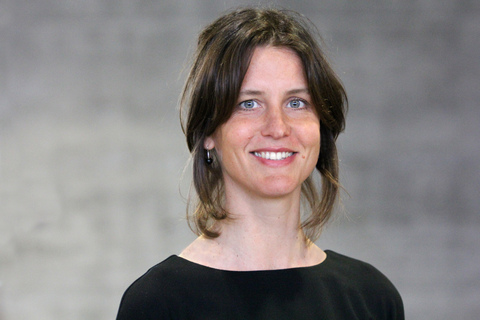Nadine was born in Amsterdam and after a happy youth in one of the many Dutch polders, she returned to Amsterdam to do her Masters in Medical Biology. Here, her passion for biology and science communication was born. For her PhD, she joined the lab of Ronald Plasterk at the Hubrecht Institute in Utrecht and dissected the mysteries of transposon silencing and RNA interference in the roundworm C. elegans. After graduating in 2006, Nadine moved to Cambridge to join Alex Schier’s lab at Harvard University. Funded by EMBO, HFSP, and the NIH, she fell in love with the first few hours of zebrafish development and spent her time investigating the role of chromatin structure in the regulation of embryonic transcription. In 2012 she moved back to Europe to start her lab at the Max Planck Institute of Molecular Cell Biology and Genetics in Dresden thanks to generous funds by the Max Planck Society, the Human Frontier Science Program, the Volkswagen Stiftung, and the Deutsche Forschungsgmeinschaft.
She joined the Center for Integrative Genomics in July 2020 as Associate Professor. Her laboratory moved in Lausanne in January 2021.
Research
The regulation of transcription during vertebrate embryogenesis is one of the most poorly understood - and yet critically essential - developmental processes. The goal of our research is to study how the transcriptional machinery and chromatin template are brought together in time and space to robustly regulate transcription during development.
After fertilization, animals go through cleavage divisions that transform the one-cell egg into a multicellular embryo. During this phase, the genome is inactive, and embryos rely on the products their mothers provided them. During the maternal to zygotic transition, developmental control is handed from maternally provided gene products to those synthesized from the zygotic genome. The onset of transcription is an excellent system to determine how all of the different variables that influence the decision to transcribe a gene or not come together to generate complex transcriptional programs.
We use zebrafish embryos as they allow us to combine molecular biology & biochemistry, genetics & genomics, and imaging & biophysics to study transcription regulation in the context of early embryonic development.
For more information, visit the lab website: https://www.vastenhouwlab.org/
Key Publications
2020
Edlyn Wu, Nadine L Vastenhouw
From mother to embryo: A molecular perspective on zygotic genome activation
Current Topics in Developmental Biology, 140: 209-254 (2020).
Article page
Amanda Amodeo, Johanna Gassler, Ksenia Kuznetsova, Philip Zegerman
Meeting report: 2nd EMBO workshop "Awakening of the genome: the maternal-to-zygotic transition"
The Node. 2020.
Article page
Elliott W. Abrams, Ricardo Fuentes, Florence L. Marlow, Manami Kobayashi, Hong Zhang, Sumei Lu, Lee Kapp, Shai R. Joseph, Amy Kugath, Tripti Gupta, Virginia Lemon, Greg Runke, Amanda A. Amodeo, Nadine L Vastenhouw, Mary C. Mullins
Molecular genetics of maternally-controlled cell divisions
PLoS Genetics. 16(4):e1008652 (2020)
Article page
Máté Pálfy, Gunnar Schulze, Eivind Valen, Nadine L Vastenhouw
Chromatin accessibility established by Pou5f3, Sox19b, and Nanog primes genes for activity during zebrafish genome activation
PLoS Genetics. 16(1):e1008546 (2020)
Article page
2019
Yuko Sato, Lennart Hilbert, Haruka Oda, Yinan Wan, John M. Heddleston, Teng-Leong Chew, Vasily Zaburdaev, Philipp Keller, Timothee Lionnet, Nadine Vastenhouw, Hiroshi Kimura
Histone H3K27 acetylation precedes active transcription during zebrafish zygotic genome activation as revealed by live-cell analysis
Development. 146(19):dev179127 (2019)
Article page
Nadine L Vastenhouw, Wen Xi Cao, Howard D Lipshitz
The maternal-to-zygotic transition revisited
Development. 146(11):dev161471 (2019)
Free copies available here.

